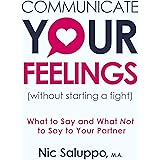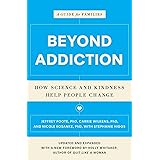In an era dominated by digital connectivity, the line between healthy engagement and excessive use can often become blurred. Many individuals find themselves perpetually tethered to their screens, navigating a complex web of information and social interactions. This pervasive digital presence, while offering undeniable benefits, also carries potential pitfalls, particularly when internet use begins to compromise an individual’s daily life. It is within this crucial context that insights into the nature and symptoms of internet addiction, as thoughtfully described by Elif T. Çolakoğlu in the video above, become exceptionally valuable.
The term “internet addiction” is often considered a significant concern within contemporary mental health discourse. It typically refers to a behavioral pattern wherein excessive and compulsive internet use leads to significant impairment in an individual’s functioning across various life domains. This impairment is not merely a matter of spending a lot of time online; rather, it is characterized by a persistent and increasing engagement with digital platforms despite adverse consequences. Consequently, recognition of the specific signs and their broader implications is becoming increasingly vital for personal and societal well-being.
Understanding the Core Impact of Problematic Internet Use
Fundamentally, internet addiction is observed to manifest through a disruption of one’s ability to maintain normal daily routines and responsibilities. As Ms. Çolakoğlu meticulously outlines, this disruption frequently encompasses a decline in academic performance, where scholastic endeavors are neglected in favor of online activities. Similarly, professional productivity can be significantly hampered, leading to decreased work performance and potential career repercussions. Such a pervasive influence underscores the severity of this behavioral pattern, indicating a shift in priorities that profoundly impacts an individual’s life trajectory.
Furthermore, the detrimental effects of excessive digital engagement are often observed within personal relationships. There is frequently a deterioration in connections with family and social circles, which can be attributed to the individual’s increasing preference for online interactions over real-world engagements. This avoidance of face-to-face interaction often culminates in social isolation, severing crucial emotional ties and support systems. Understanding this relational aspect is paramount, as healthy social bonds are widely recognized as foundational components of overall mental health and resilience.
Academic and Professional Decline
The impact of internet overuse on academic and professional spheres is often among the most visible consequences. Students, for instance, may experience a significant drop in grades due to time spent gaming, browsing social media, or consuming online content, diverting attention from studies. Deadlines may be missed, assignments may be incomplete, and overall engagement with educational material can diminish considerably. In a professional setting, employees might find their focus compromised, leading to missed targets, reduced efficiency, and strained relationships with colleagues and supervisors. Thus, the erosion of focus and productivity often serves as an early indicator of a developing problem.
Strained Interpersonal Relationships
As noted previously, the erosion of social bonds is another critical symptom that merits close attention. Individuals struggling with internet addiction are often found to withdraw from family gatherings, neglect friendships, and prefer the perceived safety or excitement of online interactions. This substitution of virtual relationships for real-world connections can leave individuals feeling profoundly isolated, even when they are constantly “connected” online. The quality of communication may also suffer, as passive online interactions replace nuanced face-to-face dialogue, which is essential for emotional development and support.
Disrupted Sleep Patterns and Self-Care Neglect
The physiological and behavioral manifestations of internet addiction also extend to fundamental aspects of self-care. Sleep patterns are frequently disturbed, with individuals staying online late into the night, leading to chronic fatigue, irritability, and decreased cognitive function during waking hours. Moreover, basic personal hygiene and self-care practices, such as proper nutrition, exercise, and cleanliness, can be severely neglected. This neglect reflects a profound imbalance, where digital engagement takes precedence over one’s physical and mental well-being, indicating a significant departure from healthy living habits.
Deception and Restlessness
Behavioral changes indicative of internet addiction often include attempts to conceal the extent of one’s online activities. Lying about the amount of time spent on the internet or the nature of online content consumed is a common symptom, reflecting guilt and a desire to avoid confrontation or intervention. Furthermore, a pronounced sense of restlessness or irritability is frequently experienced when internet access is unavailable or curtailed. This discomfort, often described as withdrawal-like symptoms, strongly suggests a psychological dependence on digital stimulation, highlighting the pervasive nature of the addiction.
Navigating the Digital Landscape Responsibly
The recognition of these symptoms, as articulated by experts such as Elif T. Çolakoğlu, represents a crucial first step toward addressing problematic internet use. Awareness allows for a more proactive approach to managing one’s digital habits and seeking support if necessary. It is not suggested that internet use itself is inherently harmful, but rather that unchecked, compulsive engagement can lead to serious adverse outcomes. Balancing the benefits of connectivity with the imperative of maintaining real-world functionality and well-being is therefore an ongoing challenge for many in modern society.
Ultimately, a critical understanding of the signs and consequences of internet addiction empowers individuals to make more informed choices regarding their digital consumption. The insights provided serve as a valuable guide for self-assessment and for identifying concerns in others. By fostering an environment of awareness and responsible digital citizenship, the potential negative impacts of excessive internet use can be mitigated, promoting healthier interactions with technology and a more balanced quality of life.











